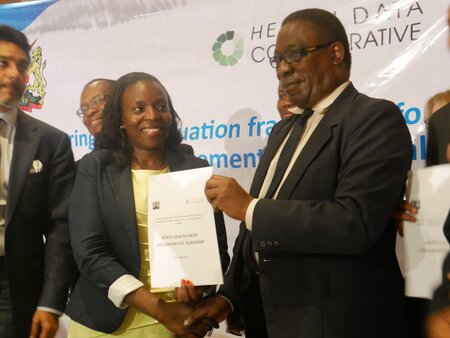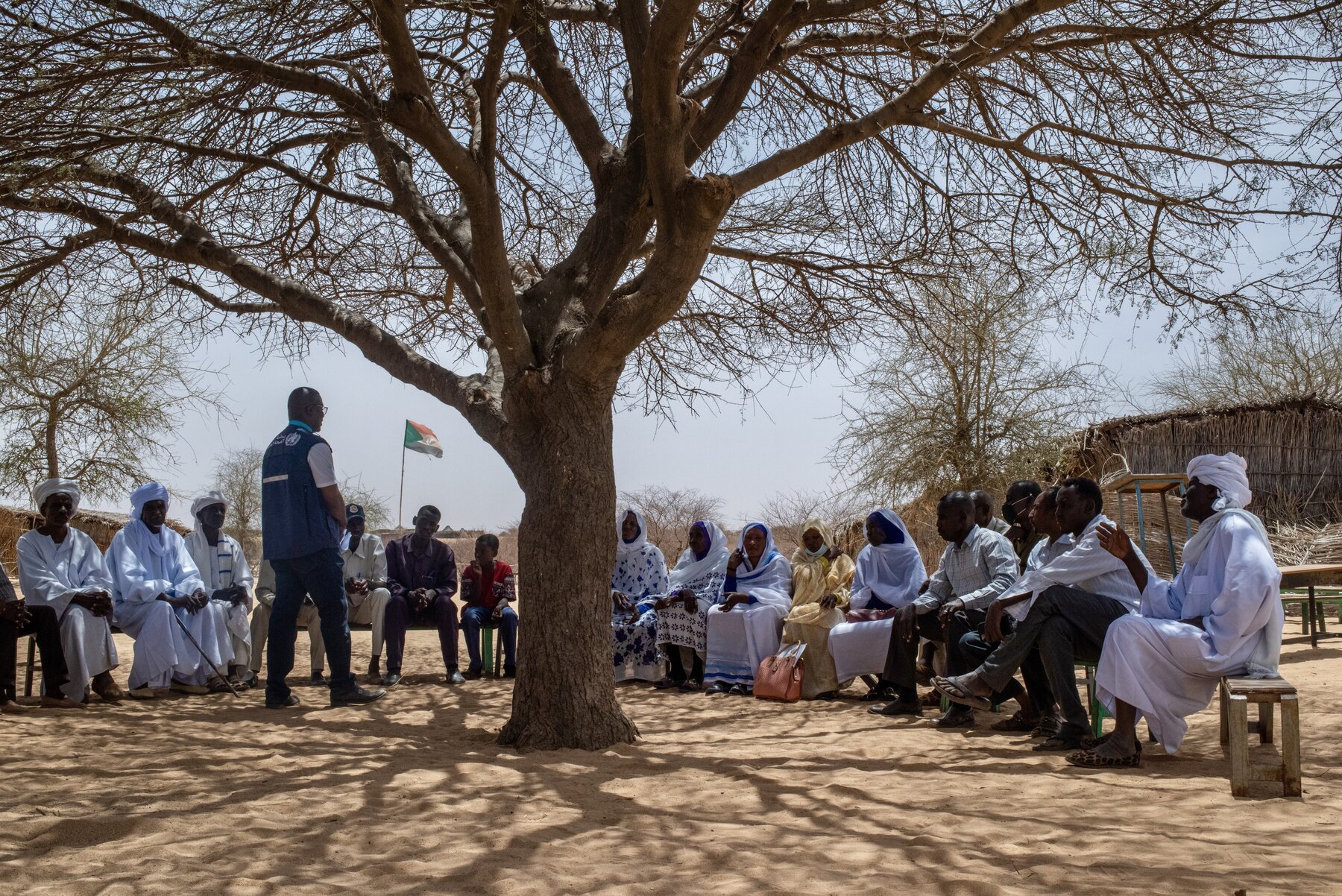Kenya takes steps to save mothers’ lives, showing why better data matters
23 May 2016

In 2013, the Kenya Ministry of Health was faced with a debate over the alarming rate of death among women giving birth: is it being caused by deep-rooted cultural values or could lives be saved with policy interventions?
To find the answer, the ministry turned to its health information system. The data clearly showed that more than a third of women were giving birth at home and that many of them weren’t accessing health facilities because of distance and financial costs.
“We saw that there was a problem with access,” says Nicholas Muraguri, the health ministry’s principal secretary, who is responsible for all health services in Kenya. “So we decided to remove the financial barrier.”
On June 1, 2013, President Uhuru Kenyatta declared maternity services free in all public health facilities in Kenya. The result: the proportion of women delivering in health facilities rose to 72 percent in 2016 from 60 percent in 2013.
Dr. Muraguri cites this example to demonstrate the power of good data to inform life-saving policy decisions. Kenya has made significant investments in strengthening data collection tools such as household surveys, health management information systems and civil registration and vital statistics.
Still, gaps in the country’s health information system remain, notably in producing high-quality data and in effectively using and analyzing data to tackle priorities such as infectious diseases and rising rates of diabetes, cancer and heart disease. In addition, single disease-focused data reporting systems required by health development partners and donors sometimes operate in isolation instead of talking to each other and linking up with government-led efforts.
To support Kenya and other countries to integrate these health data systems into a unified, more efficient framework, global health partners are now working together as a Health Data Collaborative. The goal is to harmonize investments and technical assistance and ensure that they are in line with country priorities.
As a global network of governments, UN agencies, foundations, academics, private enterprises, civil society and development partners, the Collaborative is strengthening national health information systems and capacity to track progress toward the health-related Sustainable Development Goals. Kenya and Malawi have officially engaged the Health Data Collaborative approach, and other countries are preparing to follow in 2017.
“One of the reasons we are taking this approach is because we are focusing our efforts toward meeting the Sustainable Development Goals,” said Dr Isabella Maina, head of the Health Sector Monitoring & Evaluation (M&E) unit in Kenya’s health ministry. “We need a strong health information system and M&E program to track and guide our progress toward meeting those goals.”
During a four-day meeting in Nairobi in May 2016, various stakeholders signed a joint statement of commitments to support a unified “One M&E Framework” for Kenya. Below are some highlights:
- National government will provide leadership and coordination of the One M&E Framework and increase allocation of resources toward it.
- County governments will apply and use the national standardized M&E tools and improve usage of data for all levels of decision making.
- Development partners will align assistance and partnerships for health information system investments. They will also transition away from program-specific investments in favor of the One M&E Framework.
- Faith-based organizations that provide health services will supply data according to national and county requirements and standards.
- Private sector organizations will foster public-private partnerships to provide expertise in making data systems compatible, data architecture, system administration, data visualization and web technologies.
- Civil society organizations will promote demand for data use through social accountability mechanisms.
All of these efforts will strengthen Kenya’s health information system, which will support evidence-based policy decisions to improve health outcomes for mothers and daughters, grandparents and grandchildren.
For more information on the Health Data Collaborative, please visit www.healthdatacollaborative.org.

